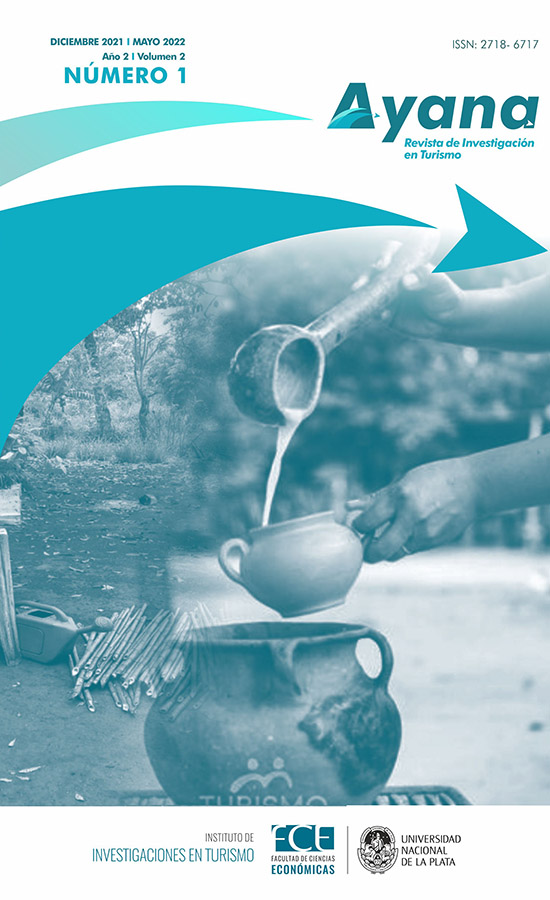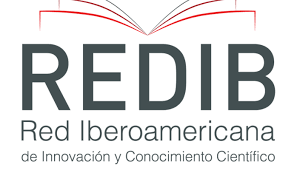The restructuring of a coastal town due to the introduction of tourist activity
The case of Huatulco, Oaxaca, Mexico
DOI:
https://doi.org/10.24215/27186717e018Keywords:
heritage, tourism, political ecology, HuatulcoAbstract
This paper aims at analysing the changes that have occurred in Huatulco, Oaxaca, Mexico due to the establishment of the Bahías de Huatulco Integrally Planned Centre. This centre is a strategy implemented by the federal government to stimulate the regional economy through tourism. Beginning in 1984, the inhabitants of this coastal territory were relocated to a space strategically prepared for the construction of a workers’ housing area. This implied, in addition to a change of residence, the reconfiguration of their daily life. From a methodological point of view this is a qualitive research, supported by both an analysis of bibliographic sources and the use of ethnographic anthropological techniques. The results of the investigation are preliminary and derive from the research project “Cultural Heritage as Part of Sustainable Development: The Case of Huatulco, Oaxaca, Mexico”. At this stage, we conclude that the restructuring of the town of Huatulco is a manifestation of the resilience of the population, which adjusted the configuration of coastal communities to a form of subsistence based on tourism. Said restructuring is in a process of reorientation and alternative forms of environmental reappropriation are necessary to promote the construction of a new territory marked by diversity.
Downloads
References
D’Argemir, D. (1999). Ecología política y antropología social. Áreas. Revista Internacional de Ciencias Sociales, 19, 79-99.
Dávila, L. A. (2015). Centros Integralmente Planeados (CIPS) en México: el proyecto turístico del FONATUR. Quaderns de Recerca en Urbanisme, 5-6, 270-285.
Durand, S. L., Figueroa, F., & Guzmán, M. (2012). La naturaleza en contexto: Hacia una ecología política mexicana. México: UNAM.
Escobar, A. (2011). Ecología política de la globalidad y la diferencia. La naturaleza colonizada. Ecología política y minería en América Latina, pp. 61-92. Buenos Aires: CICCUS.
FONATUR. (2020). Huatulco, entre los orígenes y la preservación. ttps://www.gob.mx/fonatur/acciones-y-programas/huatulco
FONATUR. (2019). Actualización del plan de desarrollo urbano del centro de población de Bahías de Huatulco, Oaxaca. FONATUR.
García, A. (1992). La planificación de centros turísticos de México. México: Limusa.
Héau, L. C. (2014). Reconstrucción de un territorio turístico mediante un bricolage cultural. Cultura y representaciones sociales, 8(16), 75-98.
Héau, L. C. (2015). Cuando la arqueología llega al rescate del turismo: el caso de Bocana del Rio Copalita, Huatulco, Oaxaca, México. Pasos, 13(5), 1095-1112. doi:10.25145/j.pasos.2015.13.075
Inda, M. & Gómez, A. (2015). Los Centros Integralmente Planeados (CIP´ S) en México. Revista Latino-Americana de Turismologia, 1(1),36-53.
INEGI (2020) Censo de Población y Vivienda. https://www.inegi.org.mx/app/areasgeograficas/?ag=20
INEGI (2001) Carta topografica D14B19 Santa María Huatulco 1:50,000 https://www.inegi.org.mx/temas/topografia/
León, X.A. & Piñar, M.A. (2020). Aproximación a la percepción social del patrimonio natural y cultural entre sectores clave de turismo en Los Tuxtlas, Veracruz, México. Sociedad y Ambiente, 23, 1-28. doi:10.31840/sya.vi23.2197.
López-Hernández, S. & Garduño-Félix, G. (2019). La Santa Cruz de Huatulco, elemento sociocultural turístico. Revistade Sociología Contemporánea, 6(21), 19-27.
Lorena, R., López, G. & López, H. (2015). Pesca tradicional y desarrollo turístico en Bahías de Huatulco. Una lectura desde la historia oral de los pescadores locales. Investigaciones Turísticas, 10, 150-169.
Mendoza-Ontiveros, M., Monterrubio-Cordero, J. & Fernández-Aldecua, M. (2011). Impactos sociales del turismo en el centro integralmente planeado (CIP) Bahías de Huatulco, México. Gestión turística, 15, 47-73.
Monterrubio-Cordero, J. & García-Cortés, M. (2011). Percepciones de la comunidad local infantil en Huatulco, México.
Un acercamiento al estudio del cambio sociocultural asociado al turismo. El Periplo Sustentable, 20, 149-185.
Monterrubio, J. C., et al. (2011). Turismo y cambios sociales. Estudio cualitativo sobre percepciones comunitarias en bahías de Huatulco, México. Cuadernos de turismo, 28, 171-189.
Morales, J. M. et al. (2015). Percepción ambiental de los prestadores de servicios turísticos y el servicio ambiental que presta el arrecife coralino en Bahías de Huatulco, Oaxaca, México. Expresión Económica. Revista de análisis, 35, 57-76.
Rodríguez, M. (2014). Percepción de los residentes locales sobre los impactos sociales del turismo en su comunidad: un estudio longitudinal en el Centro Integralmente Planeado (CIP) Huatulco, México. Texcoco: Universidad Autónoma del Estado de México.
Stonich, S., & De Walt, B. (2006). The Political Ecology of Deforestation in Honduras. The Environment in Anthropology: a Reader in Ecology, Culture, and Sustainable Living, 284-301. Nueva York: NYU Press.
Tainter, J. (2006) Social Complexity and Sustainability. Ecological complexity, 3(2), 91-103.
Talledos, S. (2012). La imposición de un espacio: de La Crucecita a Bahías de Huatulco. Revista mexicana de ciencias políticas y sociales, 57(216), 119-142.
Tetreault, D. (2017). Three Forms of Political Ecology. Ethics and the Environment, 22(2), 1-23.
Downloads
Published
How to Cite
Issue
Section
License
Those authors who have publications with this journal, agree with the following terms:
a. Authors will retain its copyright and will ensure the rights of first publication of its work to the journal, which will be at the same time subject to the Creative Commons Atribución-NoComercial-SinDerivadas 4.0 Internacional (CC BY-NC-ND 4.0) allowing third parties to share the work as long as the author and the first publication on this journal is indicated.
b. Authors may elect other non-exclusive license agreements of the distribution of the published work (for example: locate it on an institutional telematics file or publish it on an monographic volume) as long as the first publication on this journal is indicated,
c. Authors are allowed and suggested to disseminate its work through the internet (for example: in institutional telematics files or in their website) before and during the submission process, which could produce interesting exchanges and increase the references of the published work. (see The effect of open Access)

























